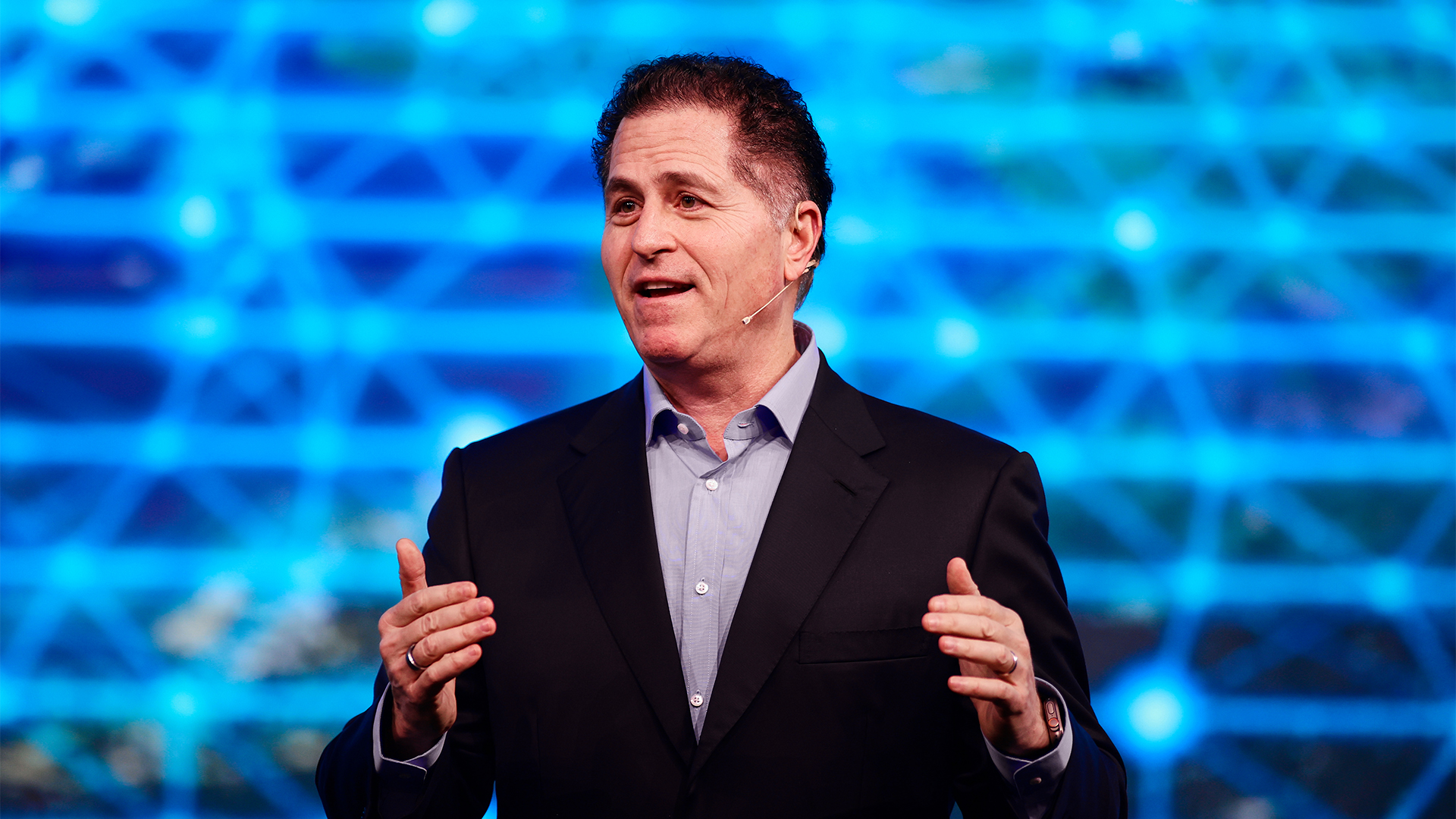Tech execs pushed for a return to the office – now they’re backtracking amid a workforce revolt, with only 3% of firms asking staff to return full-time
Return to office mandates have failed miserably, and many businesses appear to be admitting defeat


Return to office (RTO) mandates have become a recurring flashpoint between businesses and staff, but only a small number of firms are still asking employees to return to the office full-time, according to analysis from Flex Index.
Where 8% of organizations were enforcing strict return to office (RTO) mandates that demanded full in-person attendance last year, just 3% are enforcing the same sort of policies this year.
On the other end of the spectrum, Flex Index’s report found that 79% of the 2,670 surveyed firms offered completely flexible working arrangements in 2024, signaling a slight increase from 75% companies in 2023.
Most firms also appear to be giving their staff more choice on working policies, the report noted, marking a relinquishing of control by many in the long-running RTO conversation.
The report found that more than half (56%) of surveyed businesses had an “employee’s choice” model in 2024, a form of office attendance policy that allows staff members to shape their working arrangements to their individual needs.
This figure is up from 38% of businesses using the same model in 2023, making it now the most popular policy among tech firms.
By contrast, only 18% of firms are employing a “structured hybrid model” in which they mandate which days their workers must attend the office. Fully remote models are also dwindling though.
Get the ITPro daily newsletter
Sign up today and you will receive a free copy of our Future Focus 2025 report - the leading guidance on AI, cybersecurity and other IT challenges as per 700+ senior executives
Flex Index found that only 23% of firms don’t offer staff a physical location to attend in person. This figure is down from 37% in 2023.
The return to office battle has been intense
Flex Index’s report comes at a time when some of the biggest names in the tech industry are engaged in drawn-out disputes with their staff members over RTO mandates and strict office attendance policies.
The most notable example of these is Dell Technologies, which has come under serious fire for the way it handled RTO policies. The tech giant initially told fully remote staff they would have to forfeit the right to promotions or role changes unless they agreed to come back to the office, sparking a major workforce backlash.
Half of Dell’s workforce chose to ignore the threat - or risk incurring the damages - in a blatant expression of support for hybrid working policies. An internal survey at the firm then revealed the extent of the internal resentment caused by the strict RTO measures.
Google has also had notable difficulties in coaxing staff back to the office, with attempts to enforce stricter attendance policies met with backlash from staff that forced the firm’s hand and made top-level decision-makers reconsider.
RELATED WHITEPAPER

The return to office debate was once again thrust firmly into the spotlight last week when former Google CEO Eric Schmidt attributed the tech giant’s sluggish performance in the generative AI race to its working policies.
Schmidt told attendees at a Stanford University talk that the tech giant had prioritized its work from home policies over striking a lead in the AI race, suggesting that competitors had gained an edge due to their rigid policies in this regard.
Naturally, Schmidt’s comments prompted a fierce backlash online.
Despite reports suggesting that a full return to office is inevitable, frequent backlash from staff and statistics such as those gathered by Flex Index show that hybrid working practices appear to be here to stay.

George Fitzmaurice is a former Staff Writer at ITPro and ChannelPro, with a particular interest in AI regulation, data legislation, and market development. After graduating from the University of Oxford with a degree in English Language and Literature, he undertook an internship at the New Statesman before starting at ITPro. Outside of the office, George is both an aspiring musician and an avid reader.
-
 Microsoft just hit a major milestone in its ‘zero waste’ strategy
Microsoft just hit a major milestone in its ‘zero waste’ strategyNews Microsoft says it's outstripping its zero waste targets, recording a 90.9% reuse and recycling rate for servers and components in 2024.
By Emma Woollacott
-
 Dell names Lisa Ergun as new Client Solutions Group channel lead for the UK
Dell names Lisa Ergun as new Client Solutions Group channel lead for the UKNews Dell Technologies has announced the appointment of Lisa Ergun as its new Client Solutions Group (CSG) channel lead for the UK.
By Daniel Todd
-
 Dell names Lisa Ergun as new Client Solutions Group channel lead for the UK
Dell names Lisa Ergun as new Client Solutions Group channel lead for the UKNews Dell Technologies has announced the appointment of Lisa Ergun as its new Client Solutions Group (CSG) channel lead for the UK.
By Daniel Todd
-
 Google faces 'first of its kind' class action for search ads overcharging in UK
Google faces 'first of its kind' class action for search ads overcharging in UKNews Google faces a "first of its kind" £5 billion lawsuit in the UK over accusations it has a monopoly in digital advertising that allows it to overcharge customers.
By Nicole Kobie
-
 Scale of Dell job cuts laid bare as firm sheds 10% of staff in a year
Scale of Dell job cuts laid bare as firm sheds 10% of staff in a yearNews Dell Technologies’ workforce has reduced significantly in recent years, figures show, with headcount at the tech giant dropping by 10% in 2025 alone.
By Nicole Kobie
-
 Google just released a new AI agent for data scientists on Colab, and it’s free to use
Google just released a new AI agent for data scientists on Colab, and it’s free to useNews Google Labs has made Data Science Agent available to all Colab users in a bid to help developers speed up application design.
By Emma Woollacott
-
 ‘Europe could do it, but it's chosen not to do it’: Eric Schmidt thinks EU regulation will stifle AI innovation – but Britain has a huge opportunity
‘Europe could do it, but it's chosen not to do it’: Eric Schmidt thinks EU regulation will stifle AI innovation – but Britain has a huge opportunityNews Former Google CEO Eric Schmidt believes EU AI regulation is hampering innovation in the region and placing enterprises at a disadvantage.
By Ross Kelly
-
 Dell Technologies just revamped its Partner Program for 2025 – here's what to expect
Dell Technologies just revamped its Partner Program for 2025 – here's what to expectNews Dell Technologies has unveiled its revamped Partner Program for 2025, offering a range of new incentives for partners.
By Emma Woollacott
-
 'Nothing is faster than the speed of human interaction': Dell orders staff back into the office as the company shakes up hybrid working practices
'Nothing is faster than the speed of human interaction': Dell orders staff back into the office as the company shakes up hybrid working practicesNews Dell Technologies has ordered staff to return to the office five days a week, according to reports, with some exceptions allowed for staff located too far from physical office sites.
By Emma Woollacott
-
 Google Cloud names new VP for UK&I and Sub-Saharan Africa
Google Cloud names new VP for UK&I and Sub-Saharan AfricaNews The experienced executive will lead Google Cloud's operations and sales strategy across the two regions
By Daniel Todd